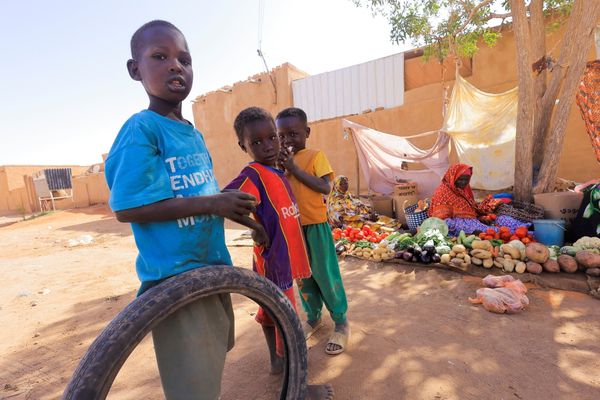Rising hunger looms in Sudan

Millions more Sudanese are at risk to go hungry this year as economic turmoil and erratic rains reduce harvests, a problem compounded by a halt to foreign assistance and the war in Ukraine, aid groups say.The rising levels of hunger forecast by United Nations agencies threaten to further destabilise a country that bestrides a volatile region and faces growing conflict and poverty following a military takeover last year.Sudan has been mired in an economic crisis since before the overthrow of Omar al-Bashir in an uprising in 2019. A transitional government attracted billions of US dollars in international support that was suspended after the coup, placing Sudan on the brink of economic collapse.Currency devaluations and subsidy reforms have driven up prices, and inflation is running at more than 250%. In Khartoum, the cost of a now smaller loaf of bread has risen from 2 pounds two years ago to about 50 pounds today.“If this measly piece of bread is 50 pounds, what kind of life can we have?” said Haj Ahmed, an elderly man standing in front of a vegetable stall in Alhalfaya, on the outskirts of the capital.The World Food Programme estimated that the number of people experiencing levels of hunger that will force them to sell essential assets, or who will have nothing more to sell, will double by September to 18 million, more than 40% of the population.Aid agencies have long worked to help the rural poor and people displaced by war in Sudan.RISING PRICESAs prices rise, farmers have been unable to afford key inputs including seeds, fertilizers, and fuel, experts say.They are also confronting increased unrest in some key farming regions and shifting weather patterns. Rainfall has been scarce in some places and too heavy in others.Sudan lacks the foreign reserves to finance imports as global wheat prices soar, a problem that analysts say has become more acute since the coup. Some 87% of imported wheat came from Russia and Ukraine, according to FAO data, where exports are disrupted by war and sanctions.In the past, Sudanese families could have supplemented wheat, consumed mainly in urban centres, with sorghum, but prices have doubled in the last four months, a trader said.That is partly due to the war-driven spike in oil prices, causing Sudanese fuel prices, liberalised only last year, to increase rapidly.Aid groups say it will be difficult to raise more money for Sudan as they battle other crises in Ukraine, Afghanistan, Yemen, and the Horn of Africa. The WFP says its food stocks in Sudan will run out in May without new funding.“People used to be ashamed to say they were hungry, but now it’s clear they are,” said Ghareeballah Dafallah, an agricultural engineer in Alhalfaya who is struggling to afford food and electricity. – Fin24

























Go Social
SocialNew Social Releases – Check them out NOW! N$3/day subscription
TikTok Content
SocialNew content for your TikTok - Watch NOW!
Weird ’n Wacky
FunHilarious video clips featuring animals, sports, food, & more!
Status Hub
SocialTrend on WhatsApp with these statuses!
Social Trending
SocialWant Top Trending Stickers and WhatsApp Stories!?